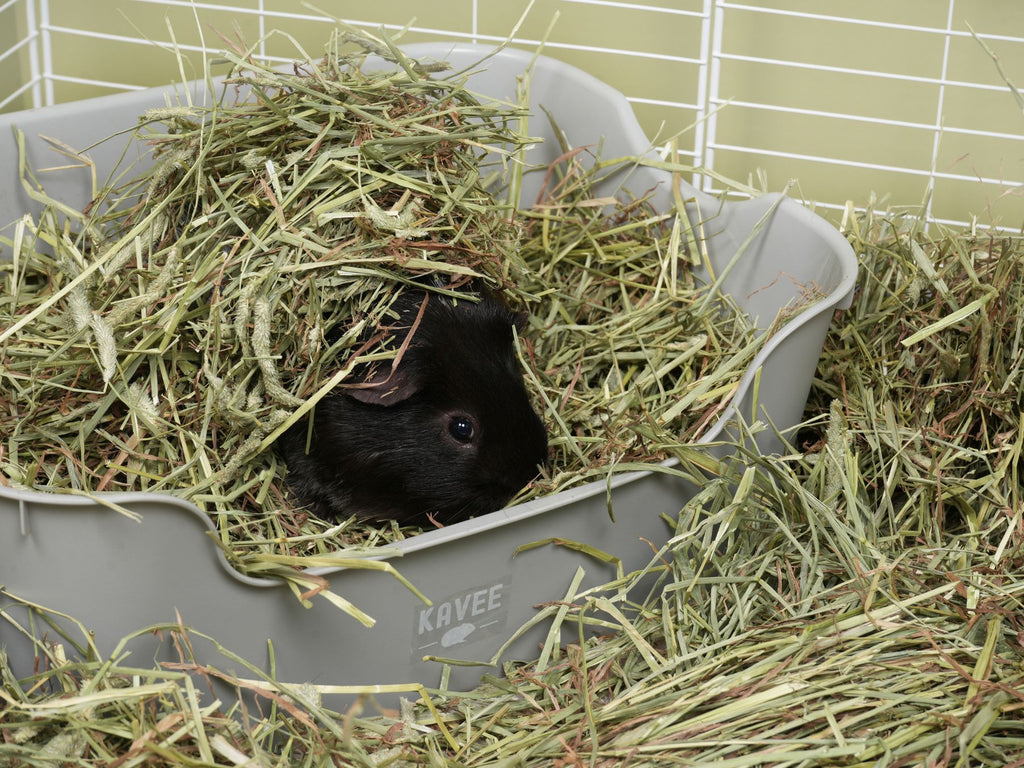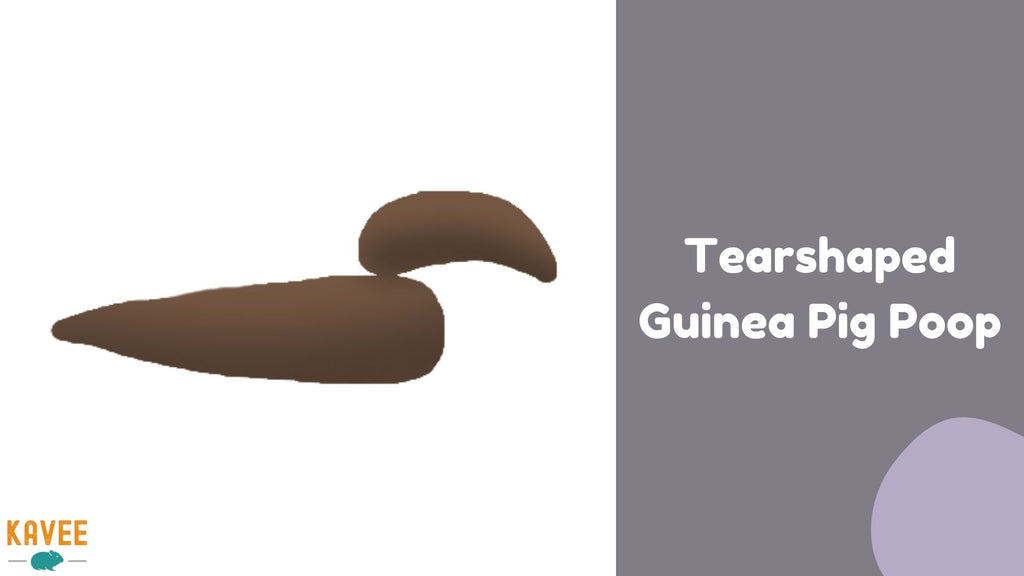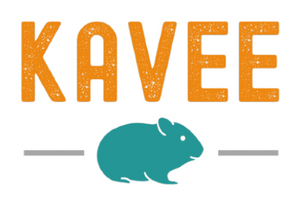Everything you need to know about guinea pig poop!
Guinea pigs may be small but they are certainly big on personality and character. Whether you have just started out with your own pairing of piggies or have owned guinea pigs for years, you’ll know that piggies are also big on one other thing: poop.
No, really! Guinea pigs produce A LOT of poop. As strange as it may sound, guinea pig poop can be quite insightful as it can tell you a lot about their health!
Read on to find out everything you need to know about your guinea pigs poop.
How often do guinea pigs poop?
Guinea pigs can poop up to an impressive 100 times a day. Now that’s a lot of poop!
As all guinea pigs are unique, this number can vary and will ultimately depend on a few factors such as age, weight, diet and exercise. Guinea pig toileting habits can change throughout their lives, so it is important to determine what’s normal for your guinea pigs and ensure that they are staying healthy and regular.
 How often should I check my guinea pig’s poop?
How often should I check my guinea pig’s poop?
It’s good care to do daily spot cleaning for your piggies. Your piggies will love you for it! As part of your cleaning routine, it is one of the best times to check your guinea pig’s poop to determine if they are keeping well. This way, if you see anything that doesn’t look right, you can monitor your guinea pig’s condition or consult your cavy savvy vet if necessary.
Guinea pigs are great at hiding illnesses, so these daily quick checks can catch warning signs early!
Why does guinea pig bedding matter?
When it comes to guinea pig bedding, there are plenty of options to choose from. The biggest difference between them however is loose bedding, such as wood shavings, or solid bedding, such as fleece.
So, why should bedding matter when it comes to guinea pig poops? Here’s why!
Loose bedding often makes it trickier to keep an eye on your guinea pig’s toileting habits as urine and poop become quickly mixed up amongst the rest of the substrate. This can make it difficult to see whether your guinea pigs are pooping regularly as well as assessing the different types of poops that they’re leaving behind.
Fleece liners, such as the ones offered at Kavee, makes it much easier to keep track of your furried friends' regularity as poops remain on the surface. After you’ve completed your routine check, delight your guinea pigs by easily sweeping or vacuuming their droppings away for a clean home!
So, what guinea pig poop should you be looking out for? Read on to find out more!

Can you litter train a guinea pig?
As much as it’d be convenient to keep all the numerous piggies’ poops in one place, guinea pigs can’t be litter trained. However, they can still benefit from having access to a litter tray filled with hay - as it’s a great place for them to have a snack, burrow, and forage.
Plus, piggies love to poop and pee where they eat, so a litter tray will still end up containing a lot of mess, reducing how often you’ll need to clean their fleece liners!

What does normal guinea pig poop look like?
Generally speaking, your guinea pig should poop as much as they eat. If you’ve noticed a change in your guinea pig’s toileting habits, it is important to understand why.
A change in your guinea pig’s poop frequency, size, shape, colour, smell and/or consistency are all key signs that there could be something wrong with their health. Here’s what to consider:
Poop Size: Roughly speaking, healthy guinea pig poops measure approximately 1 - 2cm in size.
Poop Shape: Healthy guinea pig poop looks plump and cylindrical in shape. It should be uniform and rounded at both ends.
Poop Frequency: As mentioned, guinea pigs can poop up to 100 times per day. Should there be a sudden increase or decrease in the number of poops, it can indicate that there has been a change to their diet. Guinea pigs pooping less frequently, such as less than 50 poops per day, can be a sign of a decreased, or absent, appetite. This can also indicate gut stasis where gut movement has slowed or halted, which can have a detrimental effect on their overall health.
Guinea pigs that poop more than 100 times per day can also be a sign that something is wrong. A sudden increase in poop can illustrate a change in diet or possible gut irritation.
Poop Consistency: Guinea pig poop should be smooth, solid and well formed. It should not crumble when touched and should be solid and well formed.
Poop Colour: Healthy poop should be medium - dark brown in colour, with the exception of cecal pellets which are green (more details on this type of poop below). When recently passed, guinea pig poop will have a slight shine to it.
Poop Smell: Pet owners will happily report that normal guinea pig poop rarely smells. In fact, it usually does not smell at all!

8 Different Types of Guinea Pig Poop
Guinea Pig Poop #1: Normal Poop
Normal guinea pig poop is smooth and oval in shape, with rounded ends. It often ranges from medium - dark brown in colour and may have a slight shine to them. Healthy piggy poops will hold their shape and measure approximately 1 - 2 cm in size. Healthy poop should not smell!

Guinea Pig Poop #2: Green Poop
If you see green guinea pig poop, don't panic! This type of poop, also known as cecal pellets, is actually a normal part of your guinea pig's digestive process.
Green poop is usually uncommon to see, that's because piggies will often eat these green pellets directly from their bottoms.
Now, you might be asking, 'why do guinea pigs eat their own poop?' which is a perfectly good question!
Guinea pigs are known as coprophagic. This means that they eat their own poop! As off putting as this sounds, guinea pigs consume these special types of pellets because they contain essential nutrients, such as protein and fiber, that guinea pigs eat to gain more nutrition from their food.

Guinea Pig Poop #3: Bloody Poop
If you've noticed any signs of blood in your guinea pig's poop, it's important to take your guinea pig to a cavy savvy vet immediately. Bloody guinea pig poop can be a sign of a serious tear or obstruction in their digestive system so don't wait to seek care.
For certain causes, blood may not necessarily be from your guinea pig's poop. This can also be a sign of urinary issues such as infections, bladder stones or even reproductive causes such as ovarian cysts.

Guinea Pig Poop #4: Dry, Crumbly, light coloured Poop
Dry, crumbly, and light brown guinea pig poop, directly from their bottom, can be a sign of dehydration so it is important to investigate this sign further! When left untreated, dehydration can become fatal.

If you start seeing these types of poops, here are a few things you can do to help your guinea pigs:
Check your guinea pigs water
If your guinea pig is using a water dish, check that the water is fresh and clean. Water dishes have the tendency to get dirty quickly, which often results in guinea pigs drinking less.
If your guinea pigs use water bottles, check that your piggies can comfortably reach the nozzle. Bottles too high up make it quite uncomfortable for your piggies to reach, so be sure to adjust it for easy access. Also ensure that their water is able to flow out of the bottle's nozzle. You should be able to see air bubbles floating to the top of the bottle when the ball bearing is touched.
Introduce hydrating foods
Some fruits and vegetables are packed with water which are excellent for hydrating piggies! These piggy safe foods include:
- cucumbers (~95% water)
- tomatoes (~95% water)
- watermelon (~95% water)
- blueberries (~85% water)
Cucumbers are a primary choice for guinea pigs as it is low in sugar compared to it's sugary fruit counterparts. If fruits are fed, be sure to feed them in moderation as part of a nutritionally balanced diet for guinea pigs.
Know when to seek veterinary help
As mentioned, dehydration can have dire consequences in guinea pigs if left untreated. If you continue to notice small dry poops or other symptoms arising, it is important to seek further assistance from your local exotic vet.
Other signs of dehydration include:
- crusty eyes
- poor appetite
- lethargy
- dry bedding which indicates little to no urination
Guinea Pig Poop #5: Tear Shaped Poop
Poops that are in the shape of a tear drop can be a sign that your guinea pig has an issue with their gut. Fiber is an essential part of every guinea pig's diet, so if you start seeing teardrop poops, your guinea pig may not be eating enough.
Ensure that your guinea pigs have access to unlimited, fresh, clean piles of hay. Guinea pigs will often neglect to eat if their hay is left soiled. Try stimulating their appetite by mixing in some guinea pig safe forage such as dandelions, marigold, or readigrass.
It is important to note that tear shaped poops can also indicate dehydration. Be sure to monitor your guinea pigs water intake by considering some of our points noted above.

Guinea Pig Poop #6: Clumpy Poop
Clumpy poop can be often found in older piggies, usually boars, that have weakened rectal muscles. This can cause poop to become misshaped or compacted.
However, clumpy guinea pig poops can also be a sign of gut problems, like constipation. This may result in guinea pigs showing signs of straining or discomfort when trying to toilet. If this occurs for more than a day, it's important to consult your cavy savvy vet for further assessment.

Why do guinea pigs get constipated?
Constipation is a result of a low fibre diet and poor hydration. Both water and fibre helps keep everyone's bodies to stay regular which allows food to move smoothly along the digestive tract. When fibre or water intake is reduced, it can cause waste to become hard and dry, making it harder to excrete. It can even lead to impaction.
That's why fresh water, unlimited hay, portion of fruits and vegetables, and daily exercise are all encouraged to keep our guinea pigs healthy and regular.
Guinea Pig Poop #7: Soft Smelly Poop
When guinea pig poop starts to smell, it can be a sign of infection. Smelly poop is often softer in nature. If notice that your guinea pig's poop is poorly formed and wet, you should seek urgent veterinary care as diarrhea can be fatal.

Guinea Pig Poop #8: Small Poop
Did you know that it can take up to 20 hours for food to move through your guinea pig's system? Poops that are smaller in size can reveal that a guinea pig has been having a poor appetite recently. If your piggy has been having a poorly appetite, gut stasis can occur, which is the halting of digestive movement. Syringe feeds of critical care can help give your guinea pig's body the nutritional boost their body needs.

CONCLUSION
Understanding your guinea pig’s poop is a key indicator of their health! We hope this article can help you better understand the different types of piggie droppings and what they can mean.
CHECK OUT OUR OTHER USEFUL POSTS:
Why is hay so important for guinea pigs?
The ultimate guide to using fleece liners for guinea pigs
9 signs your guinea pig loves you
Recommended guinea pig vets in the UK: Cavy savvy vet maps
What you should keep in your guinea pig emergency kit
20 best ways to bond with your guinea pigs
How to keep guinea pigs in 2021





